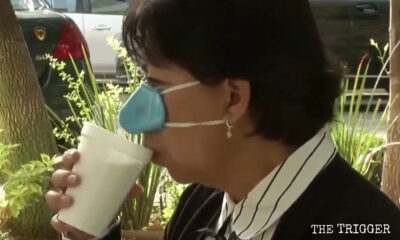INSECT EXTINCTION?
Insects are dying off, birds are dying off, the foliage is dying off… it’s almost as if everything is being sprayed with something. – VP
Published on


Insects are dying off, birds are dying off, the foliage is dying off… it’s almost as if everything is being sprayed with something. – VP



This ends when we collectively stop pretending certain people can rule over others.


It doesn't cost anything to say "NO!". We actually save money by not filtering it through...


Will future generations be able to look back on your resistance to such absurdity?


To lay claim to one's property is to claim ownership over that person.